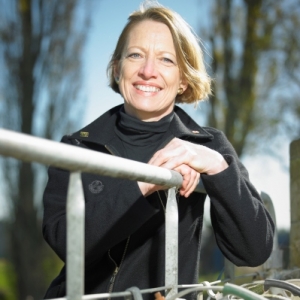In a rousing presidential address to the association’s conference in Gore earlier this month, Rowarth highlighted the habitual hypocrisy of consumers saying one thing, but buying another.
“People say they will always buy free-range eggs for instance, but what we see is the consumption of free-range eggs decreasing from 19% before the global downturn to 11% now, because of the cost. The lack of knowledge and understanding of what it actually costs to produce food is, I think, one of our biggest challenges.”
Extra costs heaped on farms to meet public environmental and animal welfare demands fail to be reflected in supermarket prices. “As a proportion of income, food is as cheap as it’s ever been and that is because of the efficient production systems you farmers use in combination with the industry.”
Rowarth urged delegates to refute complaints that food is so expensive by pointing out that the most common item in a shopper’s “basket” is a fizzy drink.
“It’s not food! There will also be [according to statistics] avocados, pineapples, exotic breads, chicken nuggets, frozen berries and dried apricots. Those of us who can remember 50 years ago will know that none of those were in the basket then.”
Supermarkets make 17% return on capital, Fonterra about 12%, sheep and beef farmers 2-3% “if they’re lucky,” she added.
“Who is making the money? You might care to point that out. Fizzy pop companies make 39% return on capital, so how could you dare to buy it?”
ETS is already adding to farm costs here, yet population growth is the main driver of increased greenhouse gas emissions in New Zealand, not changes in farm practice.
And while every other developed country in the world assists farmers to adopt technologies to meet the changing demands on land managers, New Zealand doesn’t, she noted.
When it comes to food security, despite a population of 4.5 million and producing enough food for 20 million, New Zealand doesn’t rank terribly highly. Part of the reason is a lack of food aid, but “the big one”, she says, is agricultural R&D.
“That’s where we really drop down… We’re not doing enough research, according to the Intelligence Unit of The Economist, to give us resilience to the future.”
Taking overheads out of New Zealand’s investment in agricultural R&D, as all other OECD nations do, puts us on a par with Mexico and Greece. “It’s not just a worry. I think it’s actually dire the amount we spend on research and development.”

















